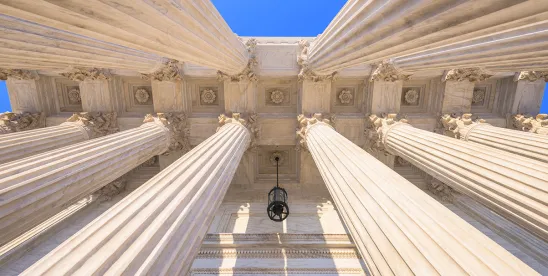On March 24, 2025, the Supreme Court declined to review a Ninth Circuit decision that provided an opportunity to clarify how its landmark decision in Loper Bright Enterprises v. Raimondo, 144 S. Ct. 2244 (2024) affects the degree of deference federal courts shall afford the National Labor Relations Board (“NLRB” or “Board”) when the Board interprets the National Labor Relations Act (“NLRA” or “Act”).
As we covered here, Loper Bright overturned the 40-year-old Chevron doctrine, which required courts to defer to a federal administrative agency’s reasonable interpretation of ambiguous statutes. Post-Loper Bright, courts are now required to apply their own construction of the law.
In declining to review the underlying Ninth Circuit decision issued on February 20, 2024, the Supreme Court let stand the court’s ruling that upheld the NLRB’s finding that an employer cannot unilaterally cease union dues checkoff after a collective bargaining agreement expires (discussed here). The Ninth Circuit’s decision was predicated on the Chevron standard, which requires deference to the Board’s interpretation of an ambiguous provision of the NLRA – like dues checkoff – if the Board’s interpretation “is rational and consistent with the Act.”
The Supreme Court gave no rationale for declining review.
Interestingly, this denial of certiorari stands in stark contrast to the Supreme Court’s decision in December 2024 to vacate and remand a D.C. Circuit opinion that upheld a Board ruling on the successor-bar doctrine, where the high court gave specific instructions to review that ruling “for further consideration in light of” Loper Bright, which we covered here. The successor-bar doctrine precludes a new employer from withdrawing recognition from an incumbent union for at least six months after that employer assumes control from its predecessor.
While the Supreme Court’s decision to decline review of the Ninth Circuit’s ruling leaves unresolved the issue of how Loper Bright affects the NLRB, it may ultimately just delay inevitable resolution of a potentially emerging circuit split around this issue.
Though the D.C. Circuit—which has jurisdiction to hear any appeal of a NLRB decision—held in July 2024 that Board decisions continue to warrant a “very high degree of deference” post-Loper Bright, as we have covered here, there is disagreement. Indeed, the very next month the Sixth Circuit held that it would “not defer to the NLRB’s interpretation of the NLRA, but exercise independent judgment in deciding whether an agency acted within its statutory authority.” Rieth-Riley Constr. Co. v. Nat’l Lab. Rels. Bd., 114 F.4th 519, 528 (6th Cir. 2024) (citing Loper Bright, 144 S. Ct. at 2262).
Ultimately, if the Supreme Court does change the deferential standard that courts have historically provided Board decisions, then that could profoundly alter how parties litigate NLRB cases. If that were to occur, then parties may head to court more frequently to overturn Board decisions with which they disagree.
We will continue to monitor the manner in which federal courts review NLRB decisions post-Loper Bright.




 />i
/>i
